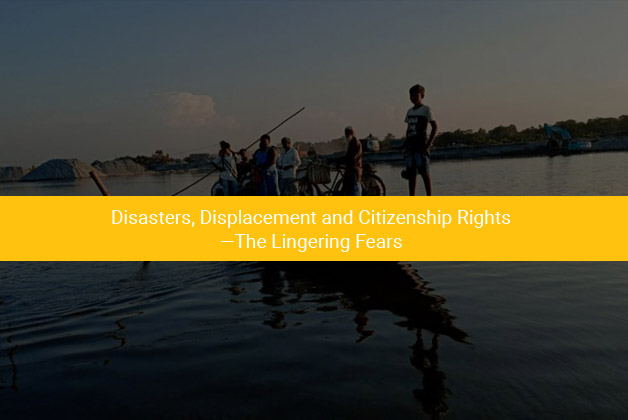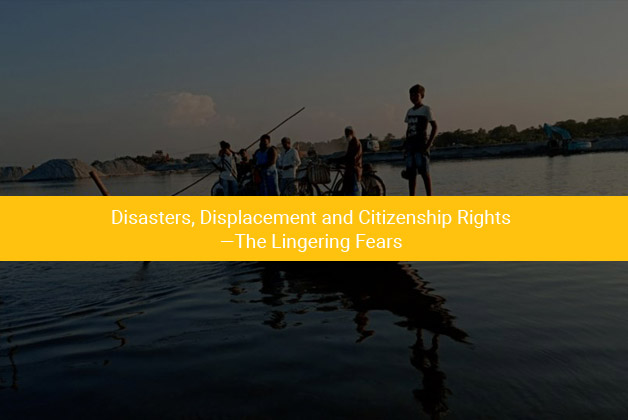

The Citizenship issue becomes even more critical for those who live in areas that see frequent floods and earthquakes. The population that somehow survives here has many additional problems that people living in plains do not need to worry about.
Ritumbra Manuvie, who teaches at the University of Groningen in the Netherlands, explores citizenship and its rights from the lens of environmental disasters and the resultant displacement of citizens particularly in the ecologically sensitive state of Assam. She argues that the communities which live at the geographical margins of climate vulnerability are also occupying the margins of political realm and citizenship. What this means is that those who grapple with natural disasters almost all the time now find themselves fighting manmade calamities by way of citizenship registers.
Despite the 2016 UN Declaration for Refugees and Migrants, and the Global Compact on Migrants, both of which include commitments to address the impact of climate change on forced movement, there is a complete disconnect between these ideals and the ground reality. In Assam, they are not even able to identify their own citizens. The author has done a lot of research on the D Voter (Doubtful Voter – the category of Assam voters who lose the right to vote due to lack of proper documentation), and found that there is a significant overlap of the D Voter list with the flood-affected areas of Assam. From her review of the research on climate change migration literature, she finds that there is undue emphasis on the lack of a coherent international policy and an assumption that the national (and provincial) governments show sympathy and economic support for these migrants.
Over 20 lakh people are displaced every year by floods in Assam, and the government prioritizes policies aimed at providing relief, rehabilitation and compensation to the displaced. Yet, by the State officials own admission the policy outcomes are either insufficient or absent, and are beset by problems like corruption, bureaucracy, inadequacy, and identification issues. The ‘illegal Bangladeshi immigrant’ suspicion is enduringly etched in not just the social interactions but also in the Government’s interaction with its people. This anti-migration sentiment can be traced back to colonial times and has only been strengthened in modern India.
Teesta Setalvad elaborates this tragedy further based on the historical context and the heritage of colonial laws. She discusses how the D Voter process has excluded about 1.13 lakh people, while the Declared Foreigners process has disenfranchised another 1.17 lakh people. The NRC exclusion process has taken away the rights of another 19 lakh people, leaving about 22 lakh people without political or economic rights. The NRC exercise has been arbitrary, biased, and is a clear misuse of power that has wreaked havoc especially for vulnerable sections among Muslims, Bengali Hindus, and the indigenous people. Unlike other tribunals, the 1200 Foreigners’ Tribunals follow no law of evidence and no set procedures, leaving the victims and even their lawyers unable to navigate the process. These processes are not transparent, and do not allow the media, family, or supporters to intervene, and the entire process is completely under the autocratic rule of the state executive.
Read more at: https://www.siasat.com/disasters-displacement-and-citizenship-rights-the-lingering-fears-2045699/
